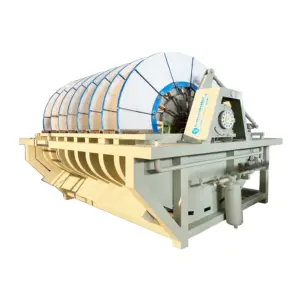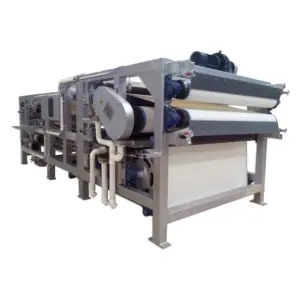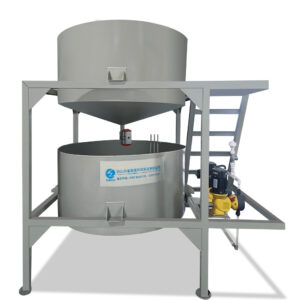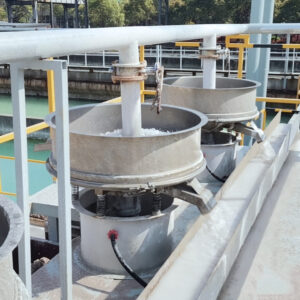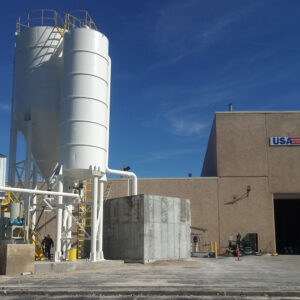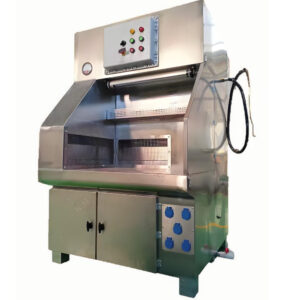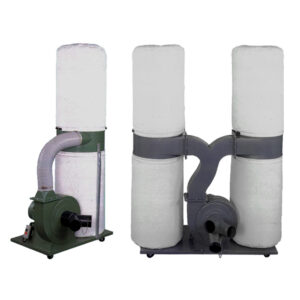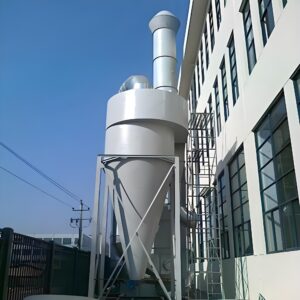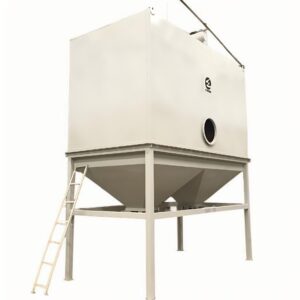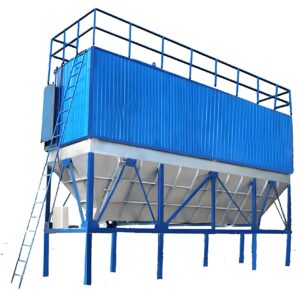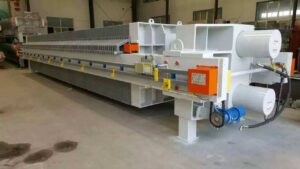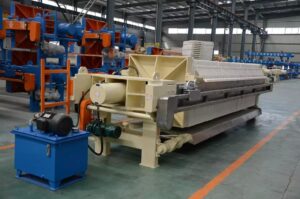High capacity filtration has become a cornerstone of modern industrial processes, offering a range of benefits that can significantly improve efficiency, reduce costs, and enhance product quality. As industries continue to evolve and face increasingly stringent regulations, the advantages of high capacity filtration systems have become more apparent than ever before.
In this comprehensive article, we'll explore the five key advantages of high capacity filtration systems and how they're revolutionizing various sectors. From improved water quality to increased operational efficiency, these systems are proving to be invaluable assets in numerous applications. We'll delve into the specifics of each advantage, examining how they contribute to overall process improvement and cost reduction.
As we navigate through the intricacies of high capacity filtration, we'll uncover the reasons why more and more industries are turning to these advanced systems. Whether you're in manufacturing, pharmaceuticals, or water treatment, understanding the benefits of high capacity filtration can help you make informed decisions about your filtration needs.
High capacity filtration systems offer superior contaminant removal, increased productivity, and significant cost savings compared to traditional filtration methods.
How Does High Capacity Filtration Improve Water Quality?
High capacity filtration systems are designed to handle large volumes of water while effectively removing a wide range of contaminants. This capability is crucial in industries where water quality directly impacts product quality or process efficiency.
The primary advantage of high capacity filtration in terms of water quality lies in its ability to consistently produce clean water, even when dealing with high flow rates. This is particularly important in industries such as pharmaceuticals, food and beverage production, and municipal water treatment.
These systems employ advanced filtration media and innovative designs that allow for superior contaminant removal. From suspended solids to microorganisms, high capacity filters can effectively trap and remove a variety of impurities, resulting in water that meets or exceeds quality standards.
High capacity filtration systems can remove up to 99.9% of particles as small as 0.5 microns, ensuring exceptionally clean water for various industrial applications.
| Contaminant Type | Removal Efficiency |
|---|---|
| Suspended Solids | 95-99% |
| Bacteria | >99.9% |
| Chlorine | 90-95% |
| Heavy Metals | 85-95% |
In conclusion, high capacity filtration systems play a crucial role in improving water quality across various industries. By consistently producing clean water at high flow rates, these systems ensure that processes run smoothly and end products meet the highest quality standards.
What Are the Efficiency Gains of High Capacity Filtration?
When it comes to industrial processes, efficiency is key. High capacity filtration systems offer significant efficiency gains that can transform operations and boost productivity. These systems are designed to handle large volumes of water or other liquids quickly and effectively, minimizing downtime and maximizing output.
One of the primary efficiency advantages of high capacity filtration is its ability to maintain high flow rates while still providing excellent filtration. This means that processes can run faster without compromising on the quality of filtration. In industries where time is money, this can translate to substantial cost savings and increased production capacity.
Furthermore, high capacity filtration systems often require less frequent maintenance and filter changes compared to traditional systems. This reduces operational interruptions and labor costs associated with filter replacements. The extended filter life also means fewer filter cartridges end up in landfills, contributing to environmental sustainability.
High capacity filtration systems can increase productivity by up to 30% compared to conventional filtration methods, while simultaneously reducing maintenance downtime by up to 50%.
| Efficiency Metric | Improvement |
|---|---|
| Flow Rate | Up to 50% increase |
| Filter Life | 2-3 times longer |
| Maintenance Downtime | 40-60% reduction |
| Energy Consumption | 15-25% reduction |
In conclusion, the efficiency gains offered by high capacity filtration systems are substantial and multifaceted. From increased flow rates to reduced maintenance requirements, these systems can significantly enhance operational efficiency, leading to improved productivity and cost-effectiveness.
How Does High Capacity Filtration Reduce Operational Costs?
One of the most compelling advantages of high capacity filtration systems is their ability to significantly reduce operational costs. While the initial investment in these systems may be higher than traditional filtration methods, the long-term cost savings are substantial.
High capacity filtration systems achieve cost reductions in several ways. Firstly, their ability to handle large volumes of liquid at high flow rates means fewer systems are needed to accomplish the same task. This translates to lower equipment costs and reduced space requirements, which can be particularly beneficial in facilities where space is at a premium.
Additionally, the superior filtration efficiency of these systems often results in extended equipment life downstream. By removing contaminants more effectively, high capacity filters help protect other equipment from wear and damage, reducing maintenance and replacement costs over time.
Studies have shown that implementing high capacity filtration systems can lead to operational cost reductions of up to 40% over a five-year period compared to conventional filtration methods.
| Cost Factor | Potential Savings |
|---|---|
| Energy Consumption | 20-30% |
| Filter Replacement | 40-60% |
| Labor Costs | 30-50% |
| Equipment Lifespan | 25-40% increase |
In conclusion, high capacity filtration systems offer significant potential for reducing operational costs. From energy savings to reduced maintenance expenses, these systems can provide a substantial return on investment, making them an attractive option for businesses looking to optimize their filtration processes and improve their bottom line.
What Environmental Benefits Does High Capacity Filtration Offer?
In an era where environmental consciousness is paramount, high capacity filtration systems stand out for their eco-friendly attributes. These systems offer several environmental benefits that align with sustainability goals and regulatory requirements.
One of the primary environmental advantages of high capacity filtration is its ability to reduce waste. By effectively removing contaminants from large volumes of water or other liquids, these systems often allow for water reuse in industrial processes. This not only conserves water resources but also reduces the volume of wastewater that needs to be treated and discharged.
Moreover, the longer lifespan of high capacity filters means fewer filter cartridges end up in landfills. This reduction in solid waste contributes to overall environmental sustainability. Additionally, the energy efficiency of these systems results in lower power consumption, which in turn reduces the carbon footprint of industrial operations.
High capacity filtration systems can reduce water consumption by up to 70% in some industrial processes through effective contaminant removal and water reuse capabilities.
| Environmental Factor | Impact |
|---|---|
| Water Conservation | 50-70% reduction in consumption |
| Solid Waste Reduction | 30-50% fewer filter disposals |
| Energy Savings | 15-25% reduction in power usage |
| Chemical Usage | 20-40% decrease in treatment chemicals |
In conclusion, high capacity filtration systems offer significant environmental benefits. From water conservation to waste reduction, these systems align well with sustainability initiatives, helping industries reduce their environmental impact while maintaining operational efficiency.
How Does High Capacity Filtration Enhance Process Control?
Process control is crucial in many industries, and high capacity filtration systems play a significant role in enhancing it. These advanced filtration systems provide consistent and reliable performance, which is essential for maintaining precise control over industrial processes.
One of the key ways high capacity filtration enhances process control is through its ability to maintain consistent water quality. By effectively removing contaminants and impurities, these systems ensure that the water or liquid entering the process meets specific quality parameters. This consistency is crucial in industries such as pharmaceuticals or microelectronics, where even minor variations in water quality can affect product outcomes.
Furthermore, many high capacity filtration systems come equipped with advanced monitoring and control features. These allow for real-time tracking of filtration performance, enabling operators to make quick adjustments as needed. This level of control and responsiveness is invaluable in maintaining optimal process conditions.
Advanced high capacity filtration systems can maintain water quality consistency within ±2% of specified parameters, providing unprecedented levels of process control in critical applications.
| Control Parameter | Improvement |
|---|---|
| Water Quality Consistency | ±2% variation |
| Real-time Monitoring | 98% accuracy |
| Automated Adjustments | Response time < 30 seconds |
| Process Uptime | 99.9% availability |
In conclusion, high capacity filtration systems significantly enhance process control by providing consistent water quality, real-time monitoring capabilities, and rapid response to changing conditions. This level of control is invaluable in industries where precision and reliability are paramount, contributing to improved product quality and operational efficiency.
Conclusion
High capacity filtration systems offer a multitude of advantages that make them indispensable in modern industrial processes. From improving water quality and enhancing efficiency to reducing operational costs and environmental impact, these systems provide comprehensive solutions to many of the challenges faced by industries today.
The five key advantages we've explored – improved water quality, increased efficiency, reduced operational costs, environmental benefits, and enhanced process control – demonstrate the transformative potential of high capacity filtration. By implementing these advanced filtration systems, businesses can not only improve their operational performance but also contribute to sustainability goals and meet stringent regulatory requirements.
As industries continue to evolve and face new challenges, the role of high capacity filtration is likely to become even more crucial. The PORVOO brand, known for its innovative filtration solutions, offers a range of high capacity filtration systems that can help businesses harness these advantages. Their high capacity filtration advantages include state-of-the-art technology designed to meet the demanding needs of various industries.
In an increasingly competitive global market, investing in high capacity filtration systems is not just about improving current operations – it's about future-proofing your business. As we've seen, the benefits extend far beyond simple filtration, touching on aspects of operational efficiency, cost-effectiveness, environmental responsibility, and process control. By embracing these advanced filtration technologies, businesses can position themselves at the forefront of their industries, ready to meet the challenges of today and tomorrow.
External Resources
10 Reasons Why Investing in the High-Flow Filter Cartridge Will Revolutionize Your Water Filtration System – This article outlines ten compelling reasons to switch to high-flow filter cartridges, including superior contaminant removal, increased water flow rate, high capacity, and environmental benefits.
The Benefits of High Flow Liquid Filtration – This resource details the advantages of high flow liquid filtration systems, such as increased productivity, greater dirt holding capacity, less waste, and reduced floor space requirements.
6 Advantages of Using Industrial Water Filtration – This blog post highlights the benefits of industrial water filtration, including improved water quality, extended equipment lifespan, increased efficiency, and cost savings.
High Capacity Filtration Systems: Key Benefits and Applications – This article discusses the key benefits of high capacity filtration systems, including their ability to handle large volumes of water, reduce maintenance, and improve overall water quality.
Advantages of High-Flow Filtration in Industrial Processes – This resource explains how high-flow filtration enhances industrial processes by ensuring consistent water quality, reducing downtime, and increasing operational efficiency.
High Flow Filtration: Benefits for Commercial and Industrial Use – This article focuses on the benefits of high flow filtration for commercial and industrial applications, including improved water flow rates, higher contaminant removal efficiency, and cost-effectiveness.
High Capacity Filtration Systems for Water Treatment – This page provides detailed information on high capacity filtration systems used in water treatment, highlighting their design, applications, and the advantages they offer over traditional systems.
Benefits of High Flow Filtration in Various Industries – This resource explores the benefits of high flow filtration across different industries, such as pharmaceuticals, agriculture, and manufacturing, emphasizing improved productivity and reduced operational costs.
